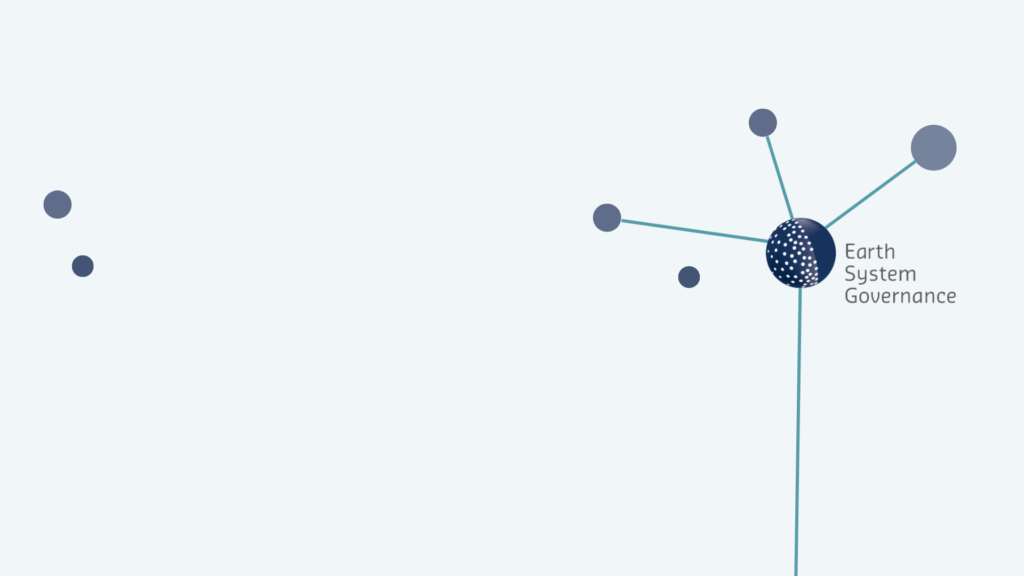Global environmental change threatens to seriously affect many regions in Africa. Novel and more effective environmental policies and governance mechanisms are needed to deal with complex, multi-scalar systems of human-nature relationships. This requires increased research efforts that should draw on conceptual frameworks that account for this complexity in the African context.
The recently published article “Earth System Governance in Africa: Knowledge and Capacity Needs” seeks to provide such a conceptual framework. In particular, the article elaborates on whether the established Earth System Governance research framework can be helpful in better understanding governance challenges in the special contexts of Africa.
The article is based on a scoping workshop organized by the Global Change SysTem for Analysis, Research, and Training (START), in collaboration with the Earth System Governance Project and the Institute of Environmental and Sanitation Studies, University of Ghana, with financial support provided by the U.S. Global Change Research Program.
Representing a diversity of disciplines, including political science, law, geography, natural resources management and environmental sciences, attendees of the workshop (all serving as authors of this article) developed a comprehensive strategy paper on key research needs in earth system governance research in Africa, of which this article presents the key insights in an abridged version.
Citation: Senay Habtezion, Ibidun Adelekan, Emmanuel Aiyede, Frank Biermann, Margaret Fubara, Christopher Gordon, Kwabena Gyekye, Emmanuel Kasimbazi, Robert Kibugi, Elaine Lawson, Adelina Mensah, Chipo Mubaya, Felix Olorunfemi, Alexander Paterson, Debay Tadesse, Raheem Usman and Ruben Zondervan. 2015. Earth System Governance in Africa: Knowledge and Capacity Needs. Current Opinion in Environmental Sustainability 2015, 14:198–205, DOI: 10.1016/j.cosust.2015.06.009
Extended Abstract
In the African regional context, complex relationships between modern and traditional governance systems and dynamics of global environmental change are arguably significant and a potential source of analytical confusion or oversimplification. Applying the Earth System Governance analytical framework allows for a structured investigation, without losing analytical depth or breadth regarding the multitude of actors, institutions and scales.
The Earth System Governance analytical framework stresses five analytical problems. These categories are not isolated and mutually exclusive. Instead the framework acknowledges overlaps and the importance of recognising relational interdependencies among the analytical problems.
The five analytical problems of the Earth System Governance framework are: The cross-scalar institutional framework and overarching norms for sustainable development or its Architecture; the Agency of various actors within this framework; the Adaptiveness of these actors regarding GEC; aspects of Accountability and Legitimacy especially regarding the democratic character of governance; and lastly Allocation and Access of resources, benefits, and risks of GEC and policy responses.
The governance Architecture in Africa is characterised by a multitude of formal and informal institutions, acting within intersecting scalar levels. The challenge therefore is to establish environmental governance that spans these systems of multi-layer authorities in order to integrate reactions to global environmental change with regional and national policies as well as local communities.
At that, power struggles arise in different arenas of earth system governance. Adaptiveness to GEC in Africa is characterised by many different actors but often centralised Agency structures show to be inappropriate to address adaptation at small scales. This necessitates considerations who should be legitimately accountable for decisions regarding environmental governance, raising the more general question of democracy within earth system governance. Furthermore, legitimate and equitable decision making is especially important in terms of Allocation of risks and Access to resources in order to maximize the effectiveness of for example available climate finance opportunities.
These issues remain largely understudied in the context of Africa, necessitating not only integrated research and revised research-programmes, but also considerations how this research is carried out and communicated. This in turn requires revision and creation of research hubs, as well as strong knowledge networks integrating scientists from across the world as well as between compartmentalised disciplines within universities.
.jpg)


